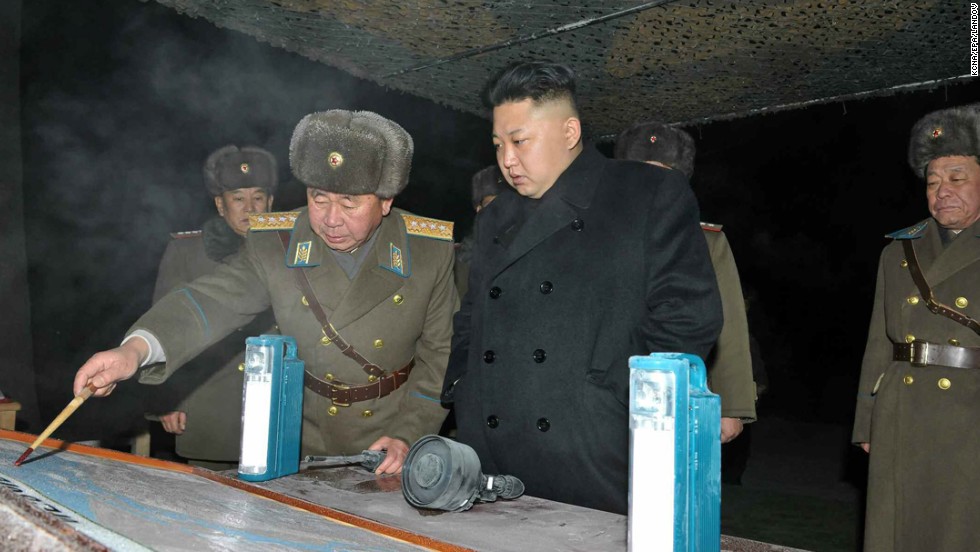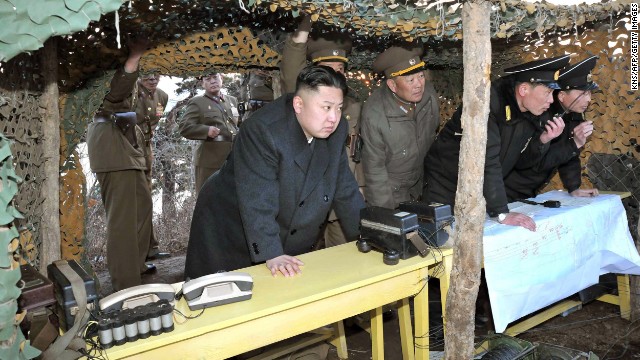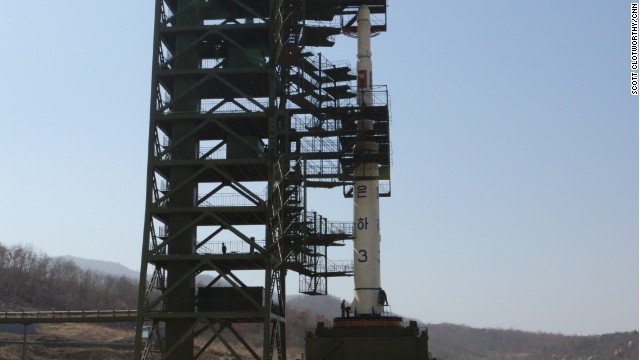Story highlights
- The message: "Don't mess with Kim Jong Un," says North Korea expert Mike Chinoy
- "This is a stunning development," says North Korea expert
- Jang Song Thaek was married to Kim's aunt, was vice chairman of the top military body
An uncle of North Korean leader Kim Jong Un has been executed for trying to overthrow the government, the Korean Central News Agency reported early Friday.
"Traitor Jang Song Thaek Executed" blared the headline posted by the state-run news agency about the man who, until recently, had been regarded as the nation's second-most powerful figure.
The story said that a special military tribunal had been held Thursday against the "traitor for all ages," who was accused of trying to overthrow the state "by all sorts of intrigues and despicable methods."
It added, "All the crimes committed by the accused were proved in the course of hearing and were admitted by him."
Once his guilt was established, Jang was immediately executed, it said.
The KCNA report described Jang as "despicable human scum" and "worse than a dog," and said he had betrayed his party and leader.
"This is a stunning development," Marcus Noland, a senior fellow at the Peterson Institute for International Economics, told CNN on Thursday. "I've been following North Korea for 20 years and I do not remember them ever publicly announcing the execution of a senior leader. You hear rumors about it, but this theatrical arrest earlier in the week and now this execution are unprecedented."
He added, "The regime, I think, is trying to intimidate anyone that might have independent ideas or harbor any ambitions."
KCNA's report comes days after Jang was removed from his military post.
Jang, who was married to Kim's aunt, had served as vice chairman of North Korea's top military body and had often been pictured beside the 30-year-old leader, who has ruled North Korea since the death in 2011 of his father, Kim Jong Il.
It has previously been reported that Kim Il Sung -- the late father of Kim Jong Il and the architect of the North Korean state -- disapproved of Jang's marriage into the family, according to Time Magazine.
In Washington, a State Department official acknowledged having seen the report of Jang's execution. "While we cannot independently verify this development, we have no reason to doubt the official KCNA report," Deputy Spokeswoman Marie Harf said in a statement.
"If confirmed, this is another example of the extreme brutality of the North Korean regime. We are following developments in North Korea closely and consulting with our allies and partners in the region," Harf added.
"I think the message to people in North Korea is: Don't mess with Kim Jong Un," said Mike Chinoy, a senior fellow at the U.S.-China Institute at the University of Southern California and author of "Meltdown: The Inside Story of the North Korean Nuclear Crisis."
"This is about as brutal and ruthless a signal that could possibly be conveyed -- that Kim Jong Un is in charge and that anybody who seeks to create any kind of alternative power center is going to get destroyed politically and, in the case of Jang Song Thaek, physically as well."
He called the incident "the most dramatic, highly visible shakeup in the North Korean leadership in decades."
Kim accused Jang and his allies of double-dealing behind the scenes, "dreaming different dreams" and selling the country's resources at cheap prices, thereby threatening North Korea's economic development, according to a KCNA statement this week.
"Jang desperately worked to form a faction within the party by creating illusion about him and winning those weak in faith and flatterers to his side," the statement said.
The statement accused Jang of womanizing, drug use, gambling, eating at expensive restaurants and undergoing medical treatment in a foreign country.
Friday's KCNA report accused Jang of having distributed pornographic pictures among his confidants and having taken at least 4.6 million euros (US $6.3 million) "from his secret coffers and squandered it in 2009 alone."
Two allies of Jang -- Lee Yong-ha and Jang Soo-kee -- were recently executed, South Korean lawmakers told reporters prior to Friday's report.
The lawmakers, including Cho Won-jin of the governing Saenuri Party, said they had received a briefing from South Korea's National Intelligence Service. CNN has not been able to independently confirm the report.
North Korea, a state shrouded in secrecy, has been involved in a protracted standoff with its neighbors and Western powers over its nuclear weapons program.
Tensions between North Korea and South Korea soared this year as Pyongyang reacted angrily to tightened United Nations sanctions imposed in response to its latest nuclear test.
The two sides are still technically at war after the Korean conflict, which began in 1950 and ended in 1953 in a truce, not a treaty.
The South Korean government held a national security meeting on Friday morning and was keeping a close eye on events in the north, Unification Ministry spokesman Kim Eui-do told reporters.
On a separate note, Seoul has accepted a proposal from Pyongyang to meet on December 19 in the Kaesong North-South Korea Industrial Complex, the spokesman said.
The execution may have repercussions among the security and military forces as well as in the economy, since Jang was well-connected in those areas, USC's Chinoy said.
"All those people now are either going to have to make very visible that they're abandoning that previous connection and that they're going to show total loyalty to Kim Jong Un, or they're going to be in trouble."
But it's not clear what, if anything, the incident may portend, he added. "It raises a lot more questions than answers."
For example, the killing could affect Pyongyang's relationship with Beijing, since Jang had dealt extensively with China -- North Korea's biggest and most important neighbor and supplier of food and aid, said Chinoy, who was a CNN correspondent.
"I think the Chinese saw him as a sober, adult supervisor" of the untested young leader, he said. And Pyongyang's denunciation of Jang -- which implied he had had dubious connections with an outside power -- was likely referring to China, whose leaders may now be "deeply unsettled," Chinoy said.
The incident could have even wider repercussions, Chinoy said.
If there is a sense of instability inside North Korea, with top-level people getting killed and others at risk, "there's always the temptation to strike out externally," Chinoy said. "You can't rule that out."













































































































































































































